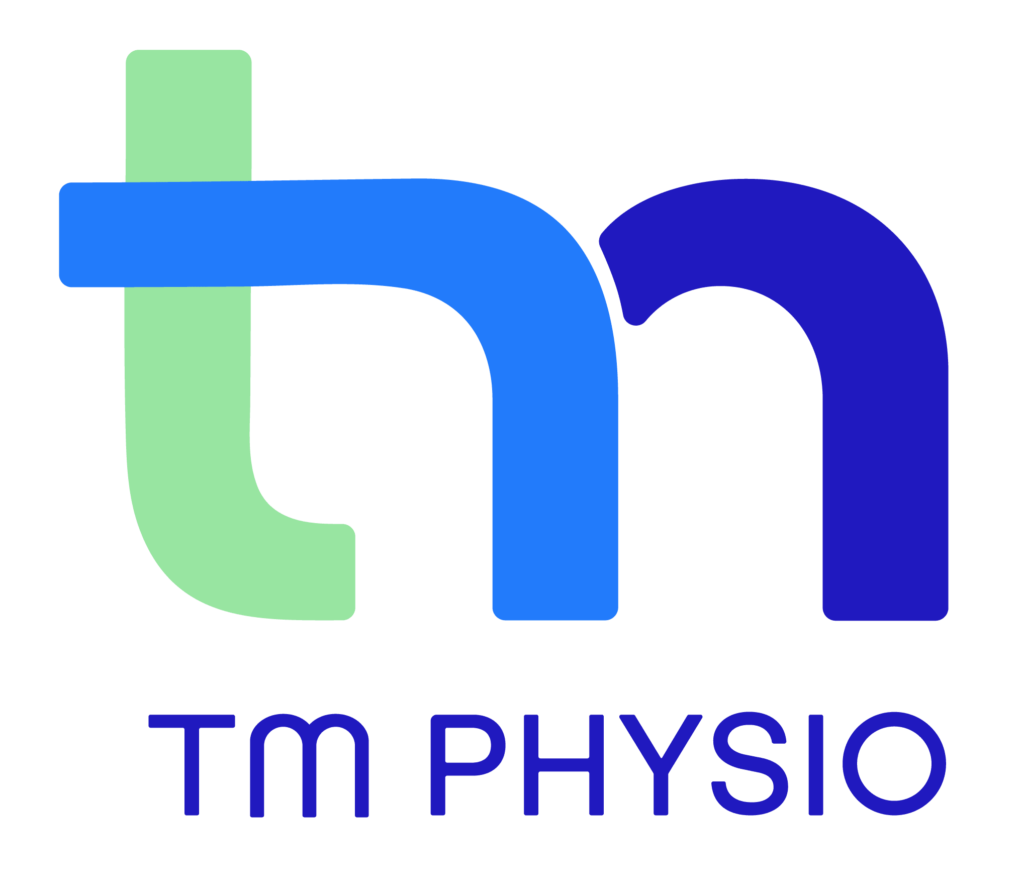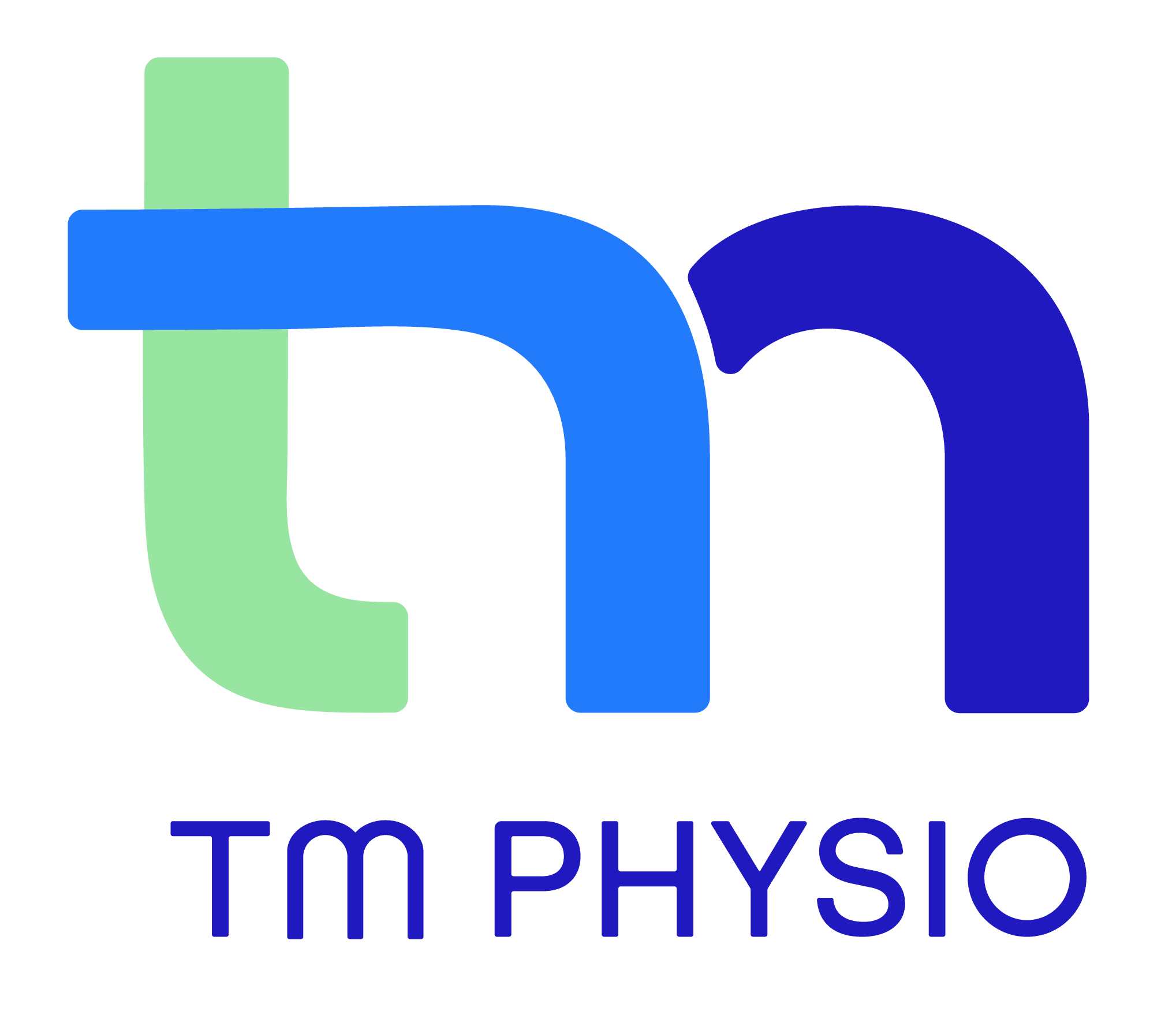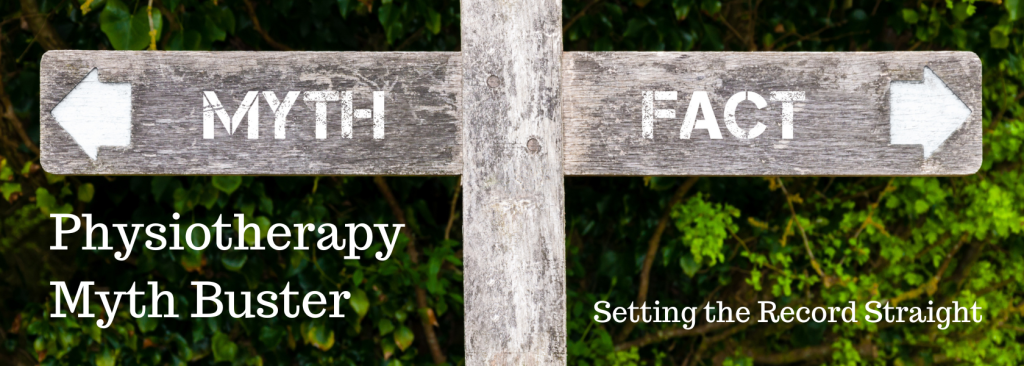Setting the Record Straight
Physiotherapy has long been an essential part of healthcare, helping individuals recover from injuries, manage pain, and improve movement. Despite its effectiveness, many myths still surround physiotherapy, leaving some people unsure about how it works or whether it’s the right choice for them. So let’s bust some of the most common myths.

Myth 1: Physiotherapy is just for athletes
Busted: While physiotherapists certainly play a key role in helping athletes recover from sports injuries, and helping them play their best, our expertise extends far beyond the playing field. Physiotherapy is for everyone—whether you’re recovering from surgery, managing chronic pain, dealing with a long-term condition like arthritis, or simply wanting to improve your mobility. From children to seniors, physiotherapists tailor their treatments to the needs of each individual. They focus on restoring function and preventing future issues, not just treating sports injuries.
Myth 2: You need a referral to see a physio
Busted: Many people believe that they can only see a physiotherapist after being referred by a doctor. In the early days of physiotherapy, patients could only see a physiotherapist with a doctor’s referral, as physiotherapy was viewed strictly as an adjunct to medical care. In the 1970s, Australia and the UK led the way in implementing direct access policies. You can book directly with a physiotherapist to address your pain, injury, or mobility issue. Since early intervention can speed up your recovery process, we encourage you to call us on [insert clinic number here] to make an appointment with one of our physiotherapists directly – no need to wait around for a referral.
Myth 3: Physiotherapy is only for serious injuries or surgery recovery
Busted: Physiotherapy isn’t limited to post-surgery rehabilitation or severe injuries. While it’s true that physiotherapists often work with patients recovering from surgeries like knee replacements or treating significant injuries like fractures, they also address everyday issues. If you’re dealing with back pain, headaches, poor posture, or chronic conditions like osteoarthritis, physiotherapy can help. Small aches and pains can escalate over time if left untreated. Physiotherapy can prevent them from becoming bigger problems.
Myth 4: Physio is painful
Busted: Your appointment may involve some brief discomfort, especially if you’re dealing with an injury, but it’s far from the painful experience some imagine. Physiotherapists use gentle techniques like soft tissue massage, mobilisation, and stretching to relieve pain and promote healing. They also ensure that exercises are introduced gradually and are suited to your comfort level. The goal of physiotherapy is to reduce pain, not increase it. If an exercise or technique feels uncomfortable, your physiotherapist will adjust it to suit your needs.
Myth 5: Once you start physiotherapy, you’ll need it forever
Busted: Physiotherapy is not a lifelong commitment, unless you have a chronic condition that requires ongoing management. For most patients, physiotherapy is a short-term treatment plan designed to help you recover from injury, surgery, or improve movement. A typical course of physiotherapy will include a set number of sessions, during which you’ll be given exercises and strategies to continue independently. The aim is to empower you with the tools you need to maintain your progress at home, so you won’t need to rely on continuous therapy.
Myth 6: Physiotherapy is only about exercises
Busted: While exercise rehabilitation is an important component of physiotherapy, it’s far from the only technique used. Physiotherapists use a variety of hands-on treatments, including manual therapy, soft tissue mobilisation, and stretching techniques to address issues with muscles, joints, and other soft tissues. They may also use modalities like ultrasound therapy, heat or cold treatments, and electrical stimulation to support healing and pain relief. Exercise is important, but it’s just one tool in the physiotherapist’s toolkit.
Myth 7: Physiotherapists are the same as personal trainers
Busted: Although both physiotherapists and personal trainers focus on improving physical health, their expertise is vastly different. Physiotherapists are healthcare professionals who are trained to diagnose and treat a range of medical conditions, from acute injuries to chronic diseases. They have an in-depth understanding of human anatomy and physiology, which allows them to create tailored treatment plans that promote healing, reduce pain, and prevent further injury. Personal trainers, on the other hand, focus on general fitness and wellness. Both are valuable, but they serve different purposes.
Myth 8: It is only for physical injuries
Busted: Physiotherapy doesn’t just address physical injuries. It’s also highly effective for managing chronic conditions such as heart disease, diabetes, and respiratory conditions like COPD (chronic obstructive pulmonary disease). Physiotherapists design exercise programs and treatment plans that can help improve lung function, circulation, and overall well-being in patients with long-term conditions. Whether you’re recovering from an injury or managing a chronic illness, physiotherapy can play a vital role in your overall health.
How physiotherapy can help you
Physiotherapy provides individualised care for a wide range of conditions, whether it’s acute injuries, chronic pain, or post-surgery recovery. It’s for everybody. If you’ve been avoiding physiotherapy because of one of these myths, it’s time to reconsider! Physiotherapy can help you get back to doing the things you love, pain-free.
If you’re experiencing pain, stiffness, or injury, call 6282 9859 to make an appointment with our physiotherapists at TM Physio. Whether it’s a minor issue or something more serious, we’re here to help you move better and feel better!
PS: Don’t forget to follow us on social media. We’re on Facebook and Instagram.
Information provided here (including text, graphics, images, outbound links, and other material) is for informational purposes only. It is general in nature and is not to be used or considered as a substitute for personalised professional medical advice, diagnosis, or treatment. Always seek the advice of your qualified allied health provider regarding any symptoms, medical conditions, or treatments and before undertaking any new health care regimen.


